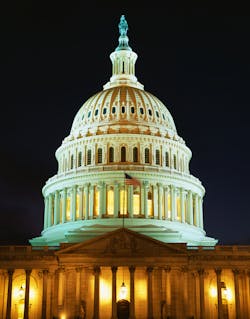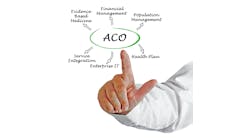The leaders of the Washington, D.C.-based NAACOS (National Association of ACOs), a national association of leaders of accountable care organizations, praised members of the U.S. Congress, after Congress passed year-end legislation that both kept the federal government running, and provided relief to individuals, families, and businesses during the COVID-19 pandemic. The legislation, passed on Monday evening, December 21, included a provision that freezes benchmarking thresholds that ACOs need to achieve in order to secure 5-percent bonuses on their annual Medicare payments.
A press release posted to NAACOS’s website on Monday afternoon began thus: “The National Association of ACOs (NAACOS) praises the work of congressional offices that saved important value-based payment incentives by including a provision in a year-end spending and COVID-relief bill. The bill encourages continued participation in risk-bearing alternative payment models like accountable care organizations (ACOs) by freezing thresholds needed to secure a 5 percent bonus on annual Medicare payments. To earn the incentives, providers must have a certain level of Medicare revenue through or patients receiving care through a risk-bearing alternative payment model. Those thresholds, which were set by Congress in 2015, increase every two years and jump to unrealistic levels in 2021. A survey earlier this year from NAACOS found that 96 percent of the 216 ACO respondents would not meet the 2021 thresholds based on their performance in 2020. Should this week’s bill be enacted, Congress will freeze 2020 thresholds for another two years.”
The press release quoted Clif Gaus, Sc.D., NAACOS’s president and CEO, as stating that, "If healthcare providers cannot count on these incentives, which support their ability to assume risk and fund key patient and ACO initiatives, then far fewer would be willing to participate in risk-bearing alternative payment models. That is the opposite of what our health system needs, especially in the face of a global pandemic. This move will help preserve Medicare’s move to a payment system that’s based more on value and outcomes, rather than volume. Congress was correct to recognize this issue before those thresholds raise next year and to prove it is committed to Medicare’s value movement,” Gaus said in a statement included in the press release. "NAACOS thanks the sponsors of the Value in Health Care Act (H.R. 7791), Reps. Peter Welch, Suzan DelBene and Darin LaHood, Senate Finance Committee Chairman Chuck Grassley, Congressmen Mike Burgess and Roger Marshall, along with Senators Sheldon Whitehouse and Rob Portman, for their work on this issue," Gaus added.
As the press release noted, “In 2017, roughly 90 percent of the clinicians who met the threshold did so through ACO participation. The average threshold score for Medicare ACOs was 44 percent in 2017 and 2018, and the threshold is set to jump to 75 percent in 2021. Because traditional Medicare patients may choose where they receive care, providers have little to no control over their performance relative to the thresholds. Earlier this month, more than 500 ACOs, medical practices, and health systems urged congressional leaders in a letter to address the payment thresholds. Nineteen leading healthcare organizations, including NAACOS, sent a similar letter in November. In September, 29 lawmakers wrote Speaker Nancy Pelosi (D-Calif.) and Minority Leader Kevin McCarthy (R-Calif.), asking the House to address the value-based payment incentives.”
The press release also noted that, “At some point this decade, Medicare spending will top $1 trillion per year. As policymakers look for ways to lower the rate of spending growth, ACOs have become the leading mechanism. In 2019, Shared Savings Program ACOs collectively saved Medicare $2.6 billion, and $1.2 billion after accounting for shared savings bonuses and shared loss payments. Moreover, 92 percent of these ACOs earned reward points for improving the quality of care for their patients.”


